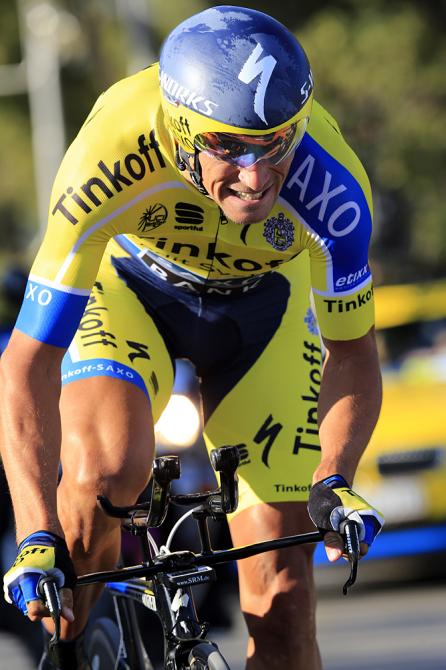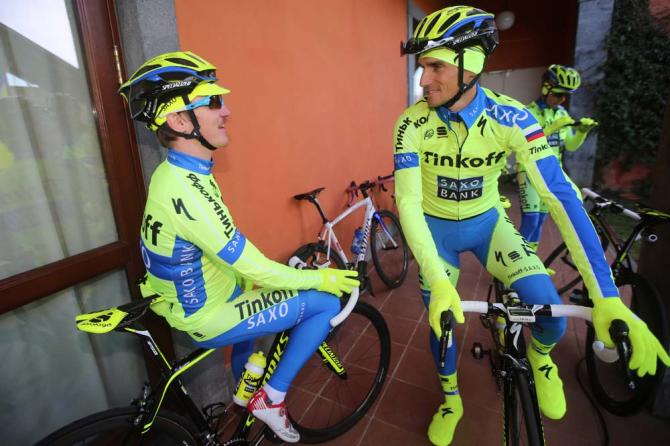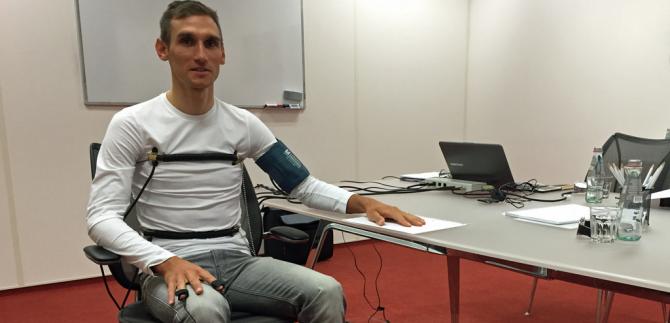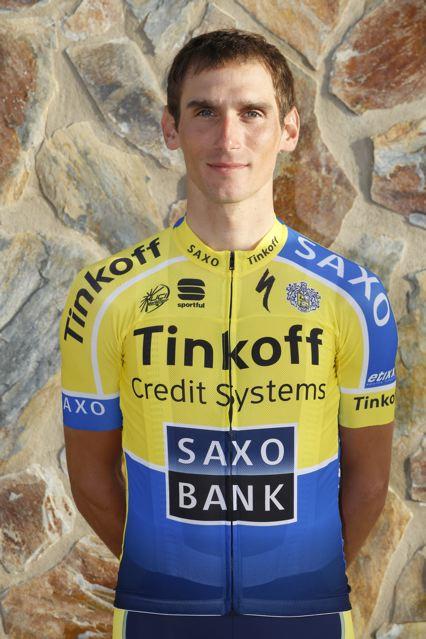Kreuziger claims a lie detector test shows he did not dope
Tinkoff-Saxo rider says arguments are on his side




Roman Kreuziger has claimed he passed a lie detector test, which confirms he is not a liar and that he has never doped. The Tinkoff-Saxo rider posted a photo of himself undergoing the lie detctor test on his personal website, explaining that he is doing everything possible to try to clear his name.
Kreuziger cleared by Czech Olympic Committee
UCI set to appeal Kreuziger's Biological Passport verdict
News shorts: Kreuziger publishes blood values online
Exclusive: Kreuziger speaks about his Biological Passport case
Kreuziger provisionally set to race Tour of Oman
Kreuziger looks to focus on racing as he awaits CAS appeal
Kreuziger hoping CAS hearing to take place in April
The Czech rider has been embroiled in a long-running battle with the UCI over his blood parameters from 2011 and 2012, when he was with the Astana team. He was cleared of any wrong-doing by the Czech Olympic Committee in September but is now awaiting for the Court of Arbitration for Sport to hear the appeal hearing requested by the UCI. A date for a hearing has yet to be confirmed by CAS.
In August, UCI President Brian Cookson told Cyclingnews that "There are very serious anomalies," when asked about Kreuziger's passport readings. He added that "the UCI and CADF experts have a very strong indication of manipulation.”
During his hearing before the Czech Olympic Committee, Kreuziger revealed that he had undergone treatment with L-Thyroxine for an under-active thyroid in 2011 and 2012, his lawyers claimed this could have affected his blood values. They also said that many of his blood samples were not stored at the correct temperature during transportation and so could have deteriorated.
Kreuziger has been training with his 2015 Tinkoff-Saxo teammates and could make his season debut at the Tour of Oman.
There is signficant debate about how reliable and so how useful lie detector tests are. They are used in some states in the US but are not generally admissible in courts in Europe. Tyler Hamilton revealed in his book The Secret Race, that he was able to beat a lie detector but results of a test were submitted in defence of Alberto Contador when he appealed against his ban to the Court of Arbitration for Sport. Ways to cheat lie detector tests have been created, further undermining their validity. However, Kreuziger claims he is doing everything in his power to clear his name.
“I took a lie detector test. I answered three key questions – and for all of them the detector confirmed that I told the truth. I repeat: I am not a cheat or a liar and I have never doped,” he said on website, listing the three questions and his answers.
Get The Leadout Newsletter
The latest race content, interviews, features, reviews and expert buying guides, direct to your inbox!
1. Have you ever doped? NO!
2. Have you ever had a blood transfusion to enhance your performance? NO!
3. Have you ever used EPO? NO!
Kreuziger said the test was performed in Prague by Terry Mullins, an independent expert and member of the British Polygraph Association and the American Polygraph Association. He works for British tribunals, military organisations and governments around the world.
“Some might say that it’s already been said. But for me the test was important. I don’t have anything to hide and I am doing everything in my power to clear my name,” he said.
Kreuziger's website provided further details of his case, media reports and interviews and messages of support.
“I am now concentrating on the upcoming hearing at the Court of Arbitration for Sport. I am not working with assumptions or probabilities, but with facts. The arguments are on my side.
"Wish me luck, it will soon be over!”

Stephen is one of the most experienced member of the Cyclingnews team, having reported on professional cycling since 1994. He has been Head of News at Cyclingnews since 2022, before which he held the position of European editor since 2012 and previously worked for Reuters, Shift Active Media, and CyclingWeekly, among other publications.